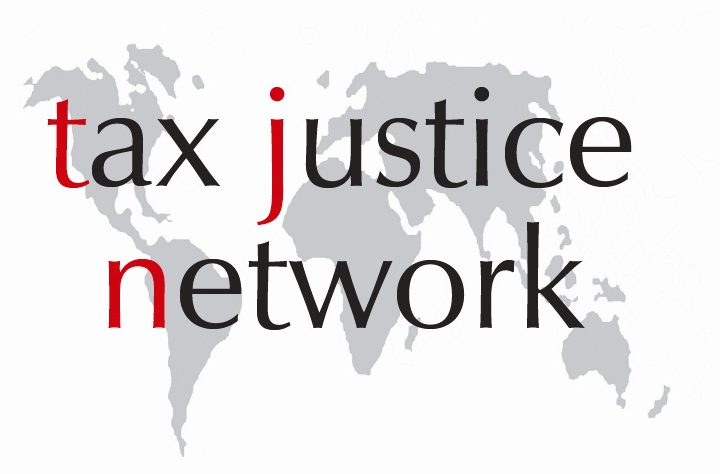
Markus Meinzer ■ Press Release: Has the European Commission’s Apple decision signalled the beginning of the end of tax wars?

Press release – for immediate release
Has the European Commission’s Apple decision signalled the beginning of the end of tax wars?
Today, the European Commission has ruled that two tax rulings issued by the Irish tax administration on the tax treatment of Apple’s corporate profits represent illegal state aid under EU law. As a consequence, Apple has to pay up to €13 billion of taxes plus interest to Ireland. This sum due to the Irish exchequer can be reduced if other countries from Europe, Africa, the Middle East or India or the United States decide to claim a share of those profits. This lays bare the core of a global problem: secretive tax rulings issued by tax haven states are not an instrument for the avoidance of double taxation, but a tool for the achievement of non-taxation of profits. In practice such rulings destroy fair market competition and undermine the tax sovereignty of democratic states.
This decision is remarkable on at least three counts.
First, the sheer size of the repayment order is extraordinary and highlights that the European Commission is not in a mood to bargain. Despite recent public implicit warnings by the US Treasury, the scale of the repayment is probably a realistic assessment of the revenue losses across the European Union. Calculations for Germany show that Apple should be expected to have paid at least €1,3 billion in additional income taxes since 2010, and a similar amount can be expected for the UK. The Commission’s assessment of €13 billion in taxes due for 2003 till 2014 appears to be broadly in line with those.
Second, the decision is explicit in saying that Ireland is not the only loser from these tax avoidance practices; other European Union countries have also lost significant revenues as a result of Apple’s tax trickery. Furthermore, because Apple’s sales elsewhere in the world (with the exception of North and South America) have been structured through the legal entities in question, today’s decision has implications far beyond Europe. It is highly likely that affected countries, of which the EU Commissioner explicitly mentioned European, African and Middle Eastern nations, but also India, are now in a position to challenge the legal fiction whereby sales in all of those countries were contractually routed through Irish legal entities. Many countries around the world have in the past taken measures to challenge these techniques aimed at the avoidance of permanent establishments in the respective countries.
Third, the Commission has made clear that the recently adopted position of the US Treasury is not based on sound facts. In its white paper, it argues that the state aid proceedings would result in a form of a direct transfer of revenues from the US to the EU. However, Commissioner Vestager explicitly has stated that the amount due to Ireland in taxes can be reduced, among others, if the respective Apple legal entities paid higher fees for research and other services to the US headquarter. This clearly shows that the EU Commission is prepared to accept a higher share of tax base being attributed to and taxed in the USA, but that it would not accept stateless or untaxed income in this order of magnitude. As research by TJN has shown in 2015, the US is likely to be the single biggest loser of US multinational’s tax avoidance schemes.
John Christensen, a director of Tax Justice Network, said:
“Apple illustrates the harm caused by tax wars between nation states. The sheer trickery of their tax arrangements renders their claims to corporate social responsibility risible, and the economic harm caused by these arrangements is also enormous. Despite their sitting on record levels of unspent cash reserves, Apple directors and their tax advisers have been cheating taxpayers around the world of billions of tax dollars. The world urgently needs a new framework for international cooperation to block countries like Ireland and Luxembourg from engaging in tax wars which harm democracy and cause untold damage to the quality of economic development.”
Moran Harari, researcher at Tax Justice Network, said:
“The courageous decision of the European Commission exposes the way Apple has abused the society’s trust to gain billions on the account of the public at large. This decision proves that consistent and justified public pressure may lead to social change. That is why we must keep fighting for tax justice.”
Markus Meinzer, a director of Tax Justice Network, said:
“Today’s decision backfires on what can be only described as boundless greed, where even after an investigation by the US Senate, Apple continued to further reduce its tax rate from 0,05% to 0,005% in 2014. It is time for Apple to smell the coffee and realise that what is unethical cannot forever remain legal. Now it is high time for tax administrations in Europe, Africa, the Middle East and India to claim a share of that pot of untaxed profits.”
Press contacts:
Moran Harari, [email protected] tel. +972 52 8812189
Markus Meinzer [email protected] tel. +49 178 3405673
About the Tax Justice Network
We are an independent international network focused on tax justice: the role of tax in society, and the role of tax havens in undermining democracy, boosting inequality and corrupting the global economy. We seek to create understanding and debate, and to promote reform, especially in poorer countries. We are not aligned to any political party.
Related articles

UN tax convention hub – updates & resources

Tax justice and the women who hold broken systems together

Malta: the EU’s secret tax sieve

The bitter taste of tax dodging: Starbucks’ ‘Swiss swindle’
Disservicing the South: ICC report on Article 12AA and its various flaws
11 February 2026

What Kwame Nkrumah knew about profit shifting
The last chance
2 February 2026

After Nairobi and ahead of New York: Updates to our UN Tax Convention resources and our database of positions
Taxing windfall profits in the energy sector
14 January 2026

The tax justice stories that defined 2025


